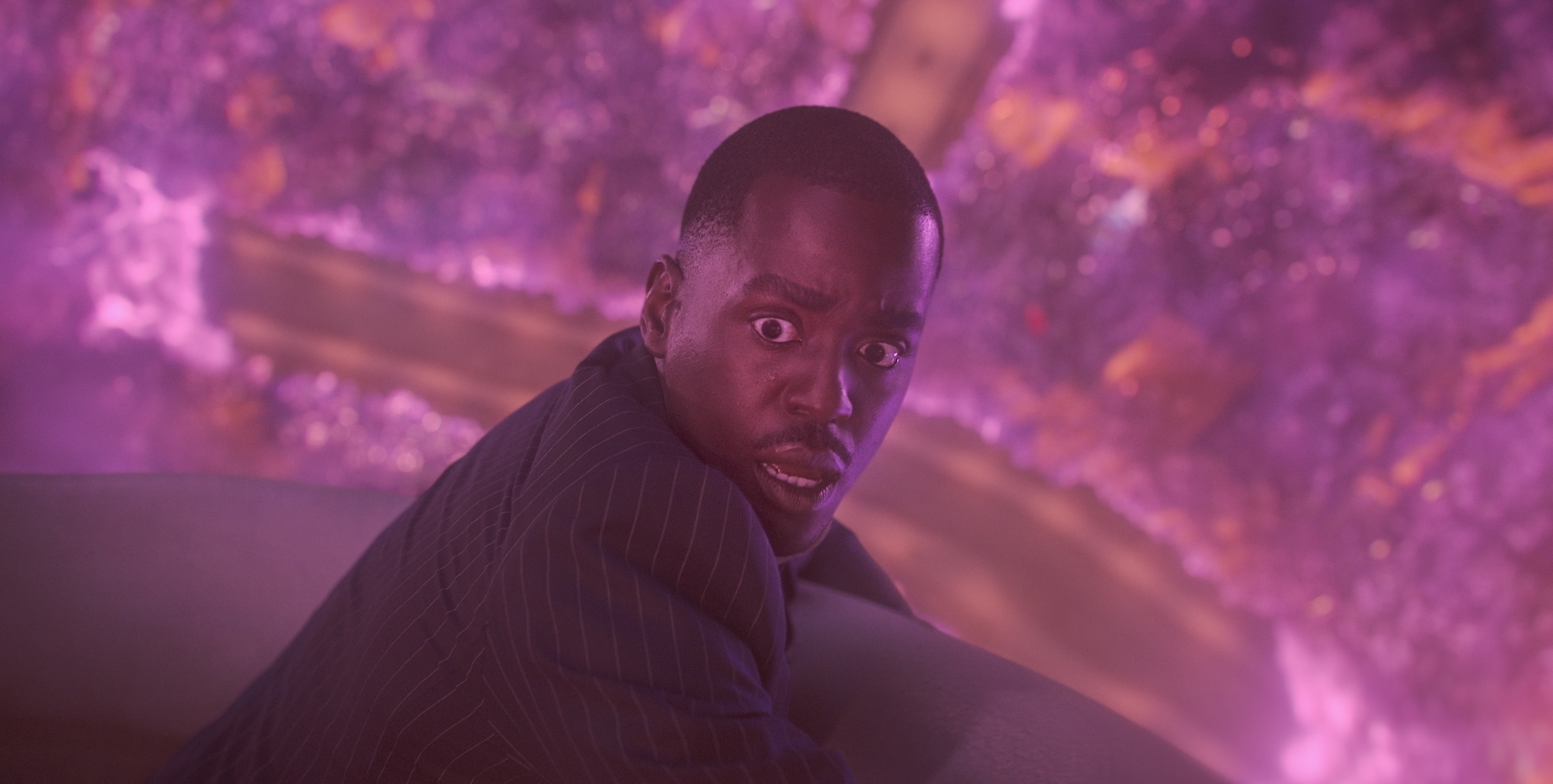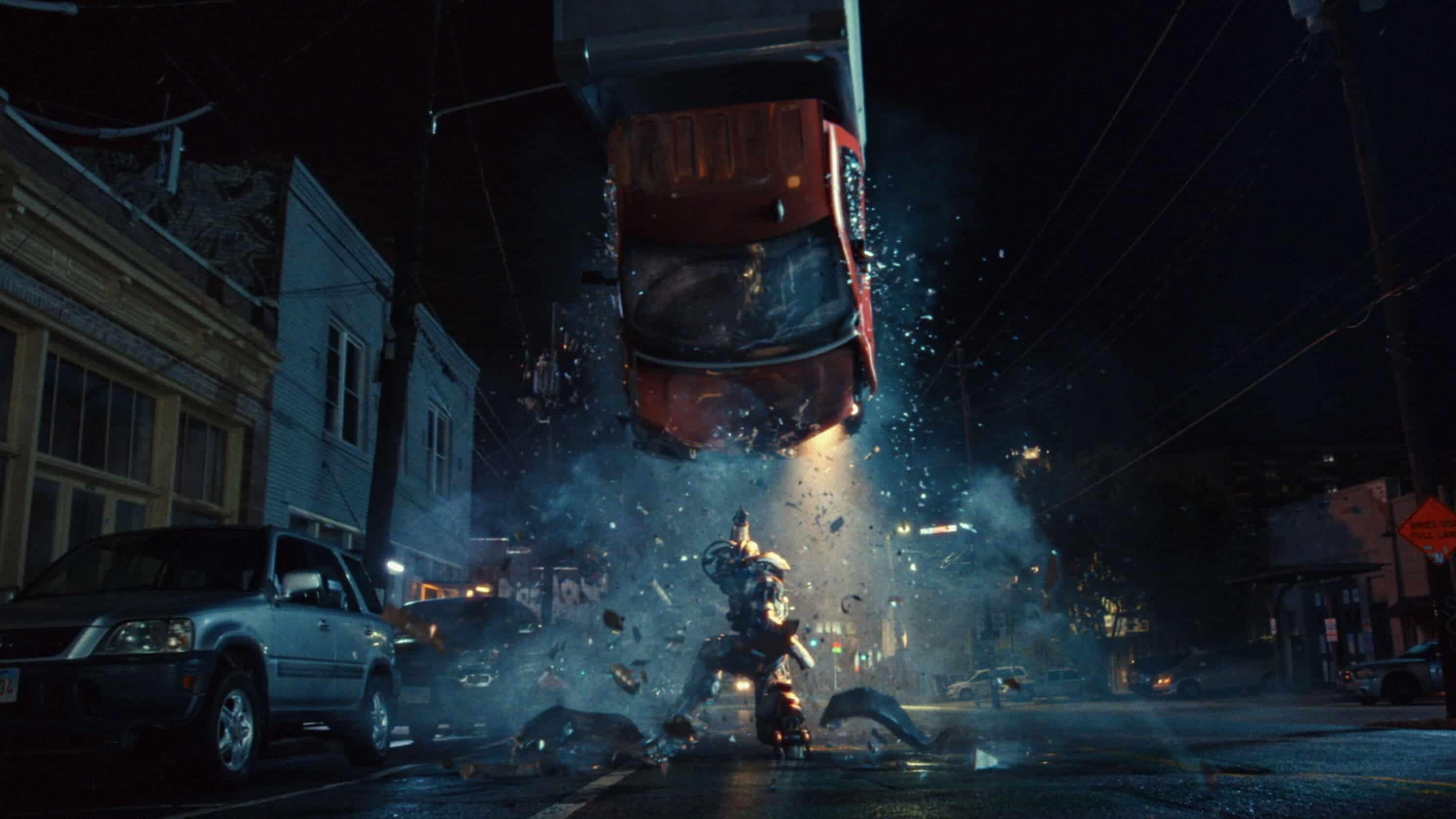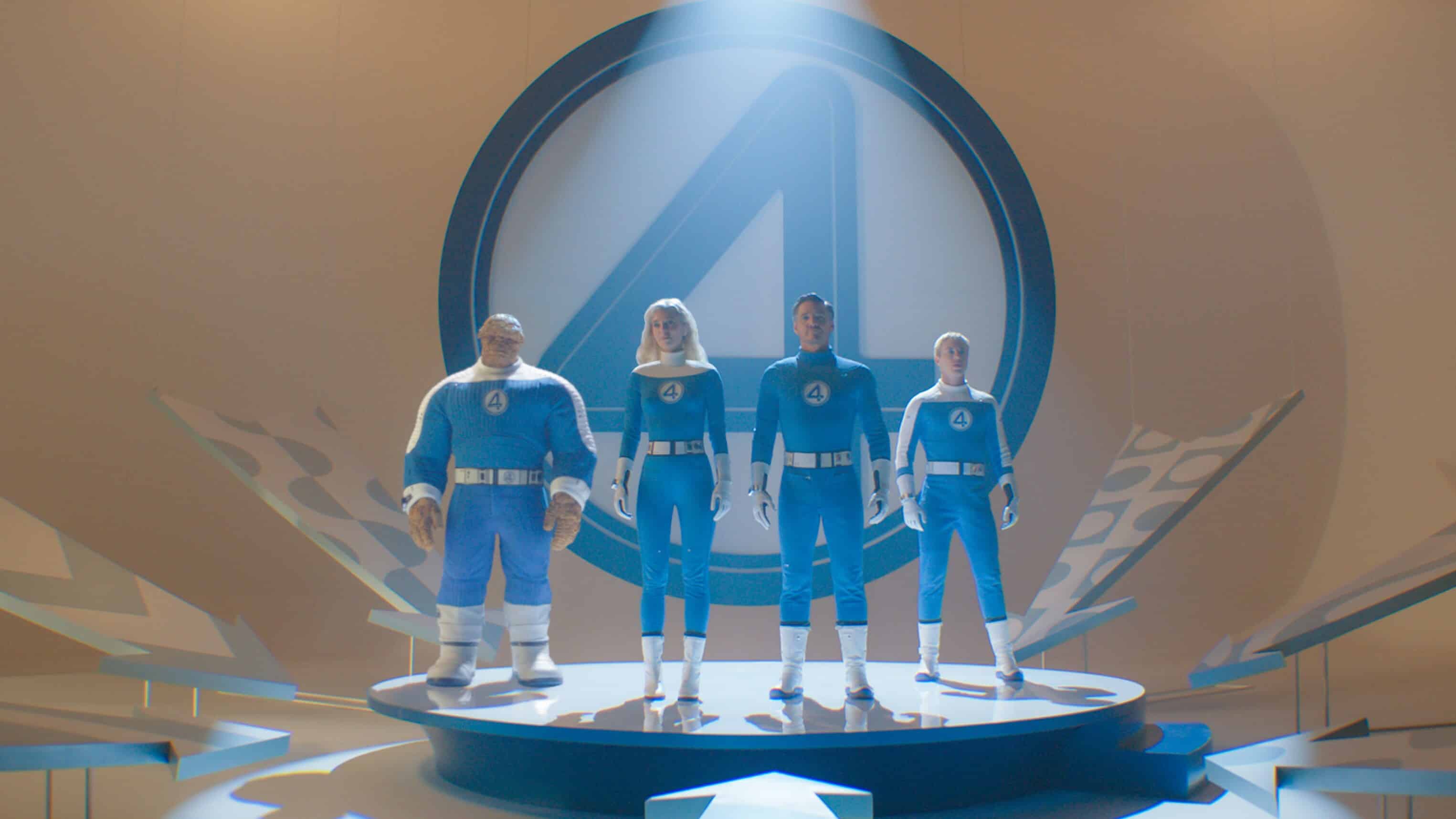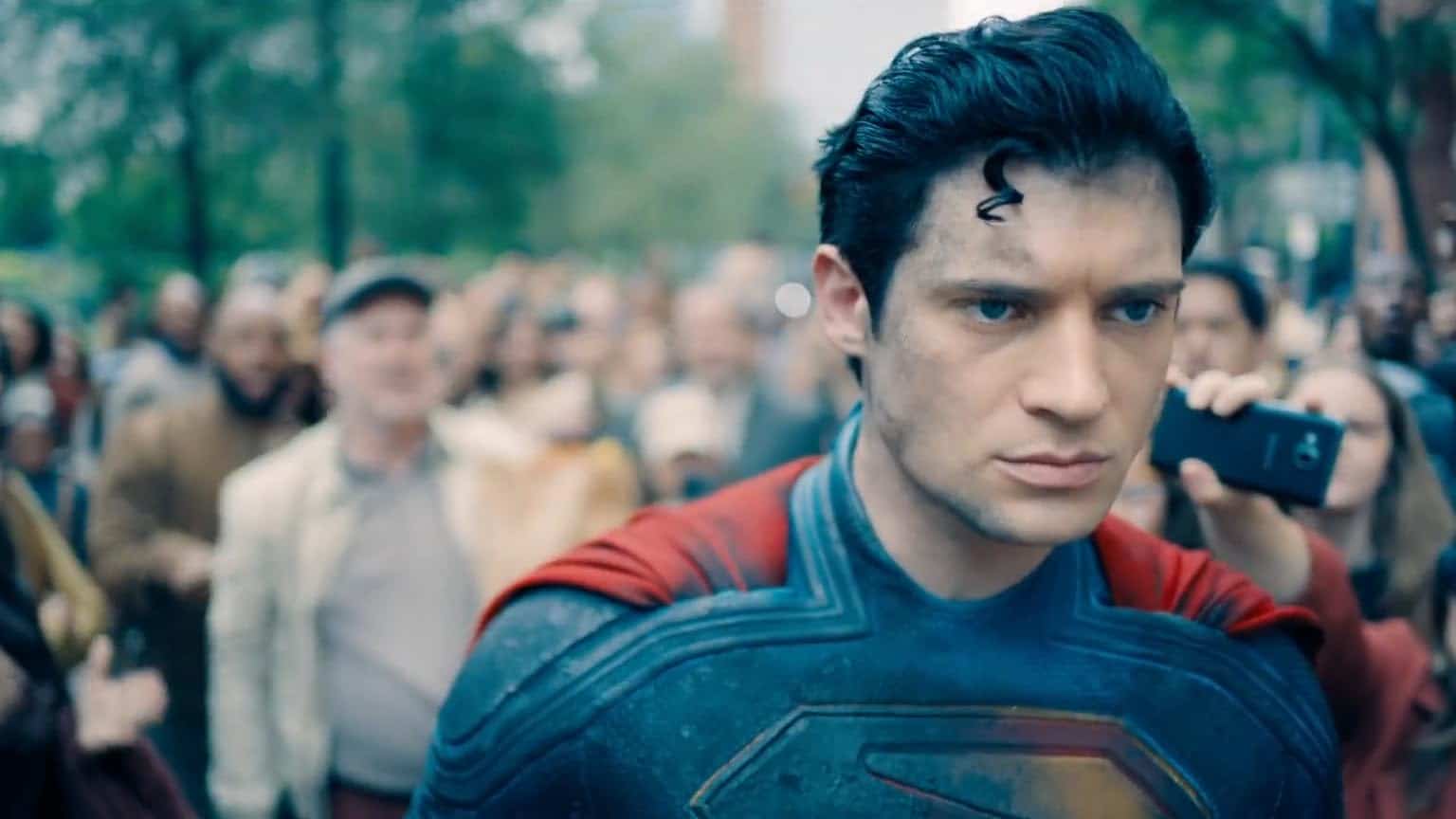Margot Waldman: When I started this series of reviews, I got something really pretty desperately wrong. I said that Russell T Davies had nothing to prove to me or to anyone else about Doctor Who. But I’ve realized that, no, he did. He had a big damn thing to prove because he had to prove that he could move forward.
And you know what? He can’t. “The Reality War” was a kick in the teeth and a slap in the face to anyone who wants this show to be more than a 2005 nostalgia tour – or any kind of nostalgia tour. It’s ouroboros – consuming itself. I’ll accept it once, with the Fourteenth Doctor – new viewers and returners needed a gateway back to the show after the implosion of Chibnall’s era. But really I guess I should say, fool me once, shame on you; fool me twice, shame on me. Then again, stunt casting Billie Piper as the Doctor after recasting David Tennant as the Doctor is so ridiculous and desperate that the only person who should be ashamed is Davies. I said this series was Doctor Who by way of late Grant Morrison – and it is, I guess, but not by way of Multiversity or Superman and the Authority like I thought.
This is Deadpool/Batman. This is the Doctor Who version of casting Robert Downey Jr. as Doctor Doom. This is the worst kind of brainless nostalgia shit.
Armaan Babu: Not to defend the decision or anything, but given those examples, you do have to wonder how much of this casting was Davies’ decision vs. Disney execs saying “Focus groups said this would work best. Find a way to write it in.”
Either way, though, as a fan, this feels lazy, and it’s a haphazardly placed cherry on top of the lazily baked cake that was this episode. I was in high spirits after the last episode, excited to see this season go out with a bang. But like much of this era’s episodes, I was left disappointed.
Margot: I’ve given this series so much love – more than, in retrospect, it maybe deserved – because, you know what, it was fun and it was forward-looking. It was wonderful to watch a piece of entertainment that tried to say something about not just today but about a brighter future – to have a Doctor who, yes, could say “I love you,” who could feel joy – Black joy, as it happened. That was wonderful – and it’s been traded in for … what? A second nostalgia trip? A second “remember how good Rose was?” Yeah, it was good – 20 years ago. We started over like this before, with Tennant’s return. And then we started over again with Ruby Sunday being our companion, a new Rose, instead of Rose Temple-Noble (I was happy to see her, of course, but, well, she didn’t do much).
Then it was Belinda’s turn in the TARDIS. I’ve always said Martha Jones was my favorite companion of the new series, but then Belinda Chandra was a repetition of her – and as this season ends, I can only say it was as farce. Martha’s story was fraught and didn’t end very well at all, really (her ending up with Mickey, who we’ll never see again – if we ever see Doctor Who again) – Belinda’s is worse and makes even less sense, and tells an even more codependent story about a woman of color’s relationship with the Doctor – a story that is faintly bizarre. Obviously I do not support babies dying or disappearing from the universe, but why, oh why, must Belinda Chandra end the series as a mother? Sure, it’s not Conrad Clark’s vision of parenthood – dad in bowler at the office, mum barefoot and pregnant – but it’s a hell of a lot closer than it should be for my money.
Armaan: For all that Doctor Who messes about with the laws of time, there is one thing that remains constant: We never have as much time as we’d like with these characters. With the “blockbuster TV” effect of having greater special effects and fewer episodes per season, however, we get even less time than what fans of the show are accustomed to. Part of the joys of the Doctor’s companions are getting to know them over time, and learn of their relationship to the Doctor.
Rose Tyler got 53 episodes with which to make her presence felt. Belinda Chandra got 7 — and though that’s certainly more time than, say, a movie character has to make an impression, whatever characterization was attempted for Belinda took a back seat to whatever the Doctor had going on in any given episode — before a wish granted to a conservatively minded man changes her world entirely.
Reality was rewritten so that Belinda had a child with the Doctor. Then reality was written to make her forget — then rewritten yet again, for the child to exist, but with a completely other random person, and through all this, Belinda herself seems to more or less be the same person. The show tries to have its cake and eat it, too — telling us that the Belinda who was whisked away to space and hoped to get home to her parents is essentially the same as the person who was whisked away to space to get home to her parents — and her daughter.

Margot: Belinda never voices a complaint about the child that has been made of her (in a process no more natural or comprehensible than the Rani’s plan to clone all of Gallifrey). More accurately, though, she’s never allowed to have any feeling about having a child given to her, enmeshed into her life’s history, other than passive and maternal amiability. A companion who’s a single mother is a good idea – but not a companion whose child is a retcon given to her. As cute as lil’ baby Poppy is, she is an invasion of Belinda’s body and the show doesn’t really care about that? At least the Doctor’s (racialized) mistreatment of Martha was textual, deliberate. But here, well, I don’t really even know how the Doctor feels about being a father, sort of – though given the Lungbarrow-esque discussion of how Time Lords can’t fuck (I thought they danced, funny) I guess I can see why his feelings would be somewhat complicated.
Look, I’ve just written about how I’ve come to like [the DC superhero] Alan Scott [who through complicated continuity was eventually made gay]. Obviously I don’t think men who love men can’t have children with women or are less valid for doing so, and of course there are lots of extenuating circumstances. But I think this is not fair to Belinda – to give her nothing to do all season except mouth old Martha Jones lines with less to say or do (I only learned today her mother was a musician – could have come up at Space Eurovision, no?) and then fob her off with a baby in Manchester, the end. We never had enough of the character for it – and if it had been less dramatic I would just say “oh well.” But this matters – and it’s nothing.
Armaan: So much of this episode was rushed. We were told there’s stuff that’s supposed to matter, but the series is so dedicated to its episodic done-in-one adventure format that when it comes to the really big ideas, they’re all crammed into long, tedious exposition scenes that not even the combined charisma of Ncuti Gatwa and Archie Panjabi can save.
Margot: Aside from behind-the-scenes drama I can only speculate about, the episode itself was sort of a basic Davies finale – and I guess I’ll defer to Armaan for that sort of thing because frankly oftentimes the bigger a story is the less I have to say about it. If you’ve read my work for the site you know that I, as a pretentious loser, love tiny little weird stories based on character dynamics and stuff like that. The action stuff here is fine, if you like that sort of thing – the wish mechanics make as little sense as Sutekh or the Dalek pattern of planets or Bad Wolf, but I suppose it had enough panache to work.
Armaan: So I’ve said it before, and I’ll say it again — you’re a more diligent Doctor Who fan than I am. I wouldn’t know how to identify a typical Davies finale, so I’m trying to judge the episode on its own merits.
The one thing I will compare it to, however, is the previous episode. It’s a two-parter, you can’t help it — especially when the two episodes are so drastically different in quality. To speak to your point about wish mechanics, yes, they didn’t make all that much sense, but we both managed to enjoy last week’s episode without much making sense there, either.
Last week’s episode, however, had a better grasp of pacing. This whole series has been up and down on pacing, and this episode in particular was perhaps the worst it’s ever been, managing to somehow feel far too long and far too short all at once, a feat I wouldn’t think possible without the help of a TARDIS.
The Doctor and the Rani spend much of the first part of this episode pacing around, using as many exclamatory sentences as possible to explain to us why everything that’s happened is incredible. They exposit, they gesture, they do dramatic turnarounds, all while the memory-restored agents of UNIT stand around with much more patience than I would have had. A scene that’s meant to be a series of big, season-ending revelations feels more like a freeform discussion of half-baked ideas in the writer’s room written down verbatim.
You’d think things would get better once everyone finally leaps into action, but no. I’ll admit that it all looks great, but given that the Doctor’s stated aim is to rewrite this fake reality, the laser battle with giant bone horsey-saurs feels hollow. A lot of empty action, with no stakes whatsoever — if the Doctor plans to make a big wish to undo everything, does it truly matter whether the UNIT HQ is destroyed?
Margot: There were moments I liked throughout this episode before its absolutely searingly frustrating conclusion. Mostly there’s not a lot to say about them – about Anita’s return destroying Conrad’s wish world (there was something rather upsettingly meta about her voyeurism throughout the canon; it feels a bit like RTD picking out Sutekh or Omega for a revival). UNIT’s back, and they have a big fight with what we now know are bone beasts, in what I propose to call the Big Bone Beast Battle (BBBB).
Archie Panjabi was probably my favorite bit of the episode, and I think she did sell the part as genuinely distinct from the Master: He hates humans, and she thinks they are just bugs, the Doctor’s unseemly fetish. That is great – and then got eaten by a giant skull monster.

Armaan: What a waste of a Rani. What an utter, absolute waste. Not only was she brought to a sudden, embarrassing end, but the epic creature she nearly broke all of reality to meet is just … a giant grumpy skeleton who wants to eat Time Lords?
It’s not impressive if your villain can be replaced with a large hippo with no changes whatsoever to the stakes.
Margot: “What is your intent?” the Doctor asks – which is a bit silly, no? I mean. It’s a giant skull built out of the myths and legends of Time Lord atrocities. It probably does not want a spot of tea. Anyways, then the Doctor zaps it to death with an electric guitar or whatever.
And so we’re back to where we started – Gatwa’s farewell tour. It’ll be a shame to lose him because in the little we saw he brought something truly fresh to the part. Nothing felt quite as meta as “I wish we had more time.” This episode was shit, just shit, but that made me really quite sad. It’s true, I really wish we did have more time – for Doctor Who, for these reviews, for new things in general. But then it’s as the Doctor – which one, again? – says, “All these faces, and we never really change.”
Armaan: The end was frustrating for me too, but not because of the reveal. I honestly believe that, while it’s a lazy idea, there’s fun that can be had from the concept. It could really turn out to be anything.
What was frustrating to me was the lead-up to the reveal. The slow mystery of where Poppy went. The absurdity of someone having to take time to convince the Doctor, of all people, that there was someone missing from time that needed to be rescued. The resolution of that last plot turning Poppy into a normal human girl.
The return of Jodie Whitaker.
It was great seeing her. It was an utterly delightful scene, but it served no purpose whatsoever. She popped in for a quick cameo crammed into an episode that was spinning its wheels before the big reveal. It was fun, but it was as empty as the BBBB fight — there were no stakes, there was no point. It was a cheap appearance, and Jodie Whitaker — frankly, everyone working on this show — deserved better.
Margot: No point except for the Doctor to sort of sourly tell her she fumbled Yaz? OK then, I suppose.
I went into this past season hoping RTD had changed, because I thought he was changing. But in the end we just went back to the same old, same old. Anything 60 years old is going to become self-referential; it’s the nature of the beast. But the problem is, when the Doctor says that beautiful things can remain beautiful even if forgotten, I can’t believe him. We’re not going to be allowed to let anything be forgotten. It’s all going to be remembered for us, wholesale, shouted at us in a Season 3 I doubt we’ll get, one which will frankly probably not be all that great for the show. I started this season, this episode, an RTD apologist – I left it thinking that, frankly, for the good of the show and for my own mental health, it should just go on hiatus.

Armaan: I wasn’t going into this season expecting a whole lot. I left myself a lot of room to be pleasantly surprised. More often than not, I was disappointed anyway. I can’t possibly say why this season turned out the way it did, but I can say that the result was shoddy, rushed, unsatisfying and, at certain points, actively insulting to its audience.
There were moments of joy, and cleverness, but the mess far outweighed any of that. I don’t know whether the show is going on hiatus, but after this finale, I just might.
Margot: I hate being negative like this, Armaan, but it’s how I honestly feel. It just feels like such a waste and a mistake. I can’t blame Gatwa for leaving the show when he did, and I couldn’t blame Disney for canning it, either.
On the other hand, it’s not like I’m going to stop watching.







